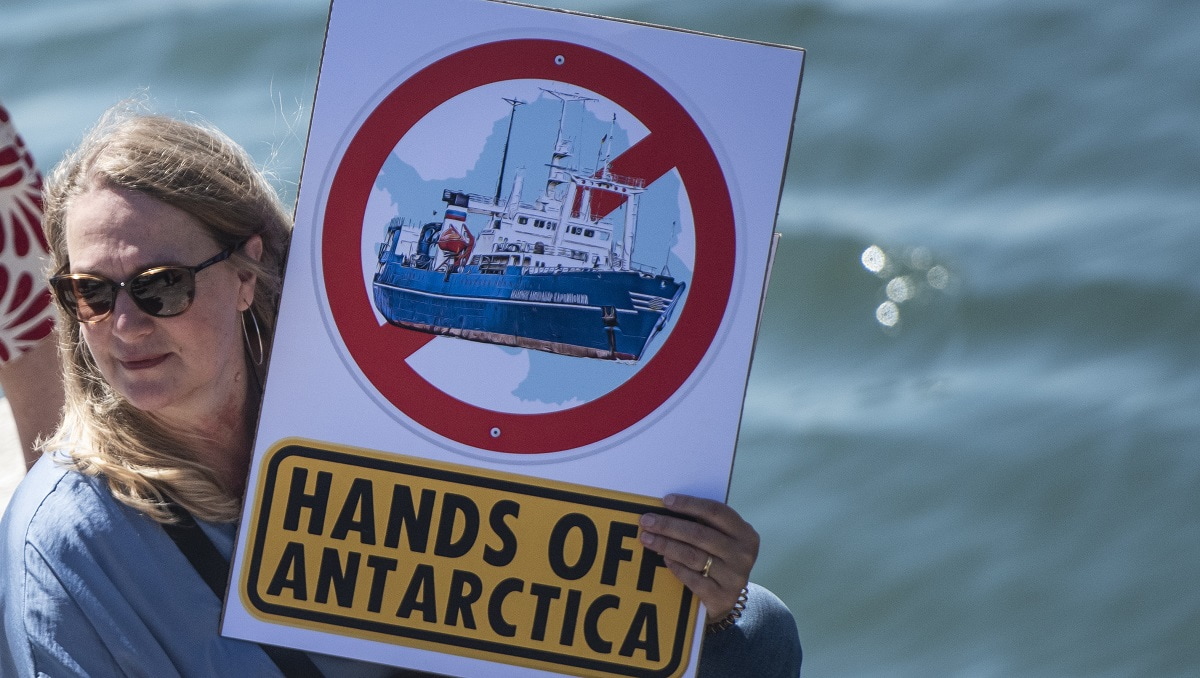Russia’s recent reported discovery of and alleged readiness to commercially exploit oil and gas reserves of around 511 billion barrels in the UK’s zone of interest in the Antarctic has alarmed many Western politicians and prominent policymakers. This new discovery is the world’s largest, dwarfing Venezuela’s reserves of 300 billion barrels and equating to around ten times the North Sea’s output over the last 50 years. Adding to concerns, Moscow’s recently appointed Defence Minister Andrey Belousov stated during a celebration of Antarctic exploration that Russia’s presence on the continent corresponds with its “scientific, economic, and geopolitical interests”. Earlier this year, Russia’s President Vladimir Putin spoke about large financial investments earmarked for Antarctic exploration from 2025–27.
Russia’s own experts and policymakers themselves argue that Antarctic-related “science diplomacy” has a clear geopolitical element.
Russia’s involvement in Antarctic affairs – weakened following the collapse of the USSR in 1991 – have undergone a renewal since 2003, evident in two strategic arenas.
The first is research, with scientific activity based on the USSR’s strong legacy of discovery keeping Russia among the key players in Antarctic exploration. Russia’s publicly emphasised focus on “purely scientific” interests in the Antarctic has led some experts and politicians, such as former British MP David Rutley, to claim that Russia’s rhetoric matches its genuine plans and aspirations. Yet there are studies suggesting that Russia’s research and development activities may in fact have alternative purposes related to the testing of dual-use electronic and anti-satellite warfare capabilities.
The second strategic arena is geopolitics. It is worth keeping in mind that in Russia, as in the USSR, science has always come second to ideology: Russia’s own experts and policymakers themselves argue that Antarctic-related “science diplomacy” has a clear geopolitical element, serving Russia’s economic and political national interests. Russian federal-level strategic documents – such as the National Security Strategy (2021), the Antarctic action plan for 2030 (2021), the Maritime Doctrine (2022), and the Concept of the Foreign Policy of the Russian Federation (2023) – clearly name the continent as part of Russia’s foreign policy.

Even though the Antarctic is legally safeguarded against commercial exploration for natural resources by the Antarctic Treaty (1959) and the Madrid Protocol (1998) – including drilling for oil and mining of critical minerals, as well as the prohibition of military-related activities – many experts doubt existing treaties would stop Russia. Indeed, Russia’s legal nihilism and defiance of international law, along with the lack of legally binding territorial division of the continent, and the rapidly growing interest of China, may pose serious dangers to existing Antarctic-related international agreements.
While it is unclear what might happen after 2048, when the Antarctic Treaty could be modified, the burning question is whether Russia would actually challenge the Treaty now and begin commercial exploration of the reported new reserves. The short answer to this is no, for a combination of reasons including Russia’s military humiliation in Ukraine; a lack of technology; economic unsustainability; and a guaranteed negative reaction in the Global South and among Russia’s BRICS partners. So, another question arises: How to make sure Russia does not go ahead with its plans? In this, three issues are relevant.
The Kremlin’s level of assertiveness will greatly depend on the outcome of the Russo-Ukrainian war.
First, unlike the Arctic, whose resource base currently drives the Russian economy, Moscow’s plans for the Antarctic are futuristic. At some later point, Russia’s intent is no doubt to expand its ambitions for natural resources, which aside from hydrocarbons and critical minerals also include pure drinking water and fisheries. Given the limitations of existing technologies and the high price of commercial oil extraction, the pursuit of Antarctic resources may be economically unsustainable.
Second, Russia sees the Antarctic – somewhat akin to the Arctic – as a platform for strengthening ties with “friendly” (non-Western) countries such as India, South Africa, and above all China. Russia will use the Antarctic as part of its anti-Western (dis)information campaign and “anti-colonialism” narrative. In 2006, Russia tried using a “neo-colonialism” narrative to criticise Australia and other actors for their territorial claims in the Antarctic. Russia stated that “territorial claims” on the continent were not valid and should not preclude other actors from conducting their activities in Antarctica.
Third, the future of the Antarctic and Russia’s behaviour therein will not be decided in the Southern hemisphere. The Kremlin’s level of assertiveness will greatly depend on the outcome of the Russo-Ukrainian war. If Russia is successful, we should expect Moscow and Beijing to become far more assertive in their individual and collective actions in both the Arctic and Antarctic.

